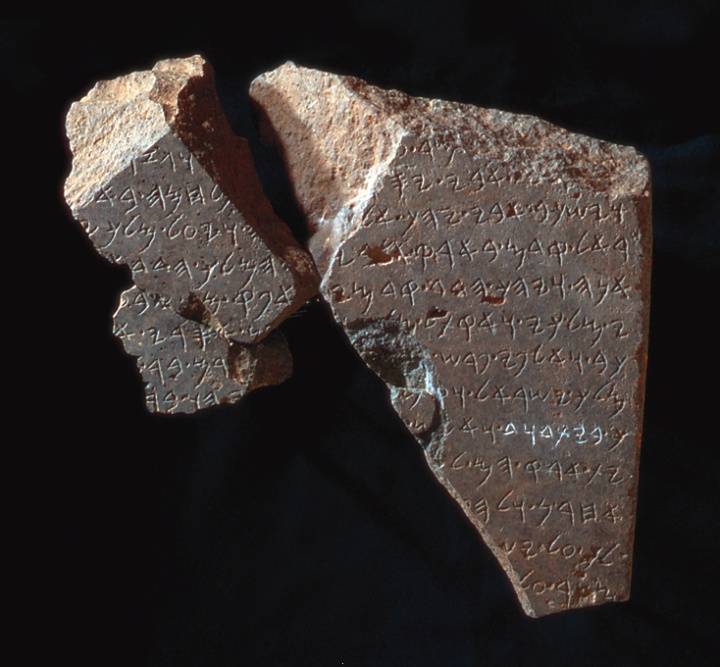King David's Existence Verified by Inscription

For many years some critics have asserted that many biblical figures, including King David, are nothing more than myth. But in 1993 a dramatic find forced Bible critics to retreat. A team of archaeologists digging in northern Galilee "found a remarkable inscription from the ninth century B.C.E. [Before the Common Era] that refers both to the 'House of David' and to the 'King of Israel'" ("'David' Found at Dan," Biblical Archaeology Review, March-April 1994, p. 26).
This discovery was sensational enough to make the front page of The New York Times. The inscription also shows that Israel and Judah were important kingdoms in the ninth century B.C., disproving the position of scholars who claimed Israel and Judah were never nations of significance and even disputed that there had ever been a united monarchy under David.
Although this is one more piece of evidence that refutes the arguments of those who have rejected biblical history, we must realize it is impossible to verify every biblical event through archaeology. Much of the original evidence no longer exists. Many perishable materials have long since disappeared. Looking for physical evidence of a particular person is like looking for a needle in an enormous haystack.
In spite of these difficulties, David joins many other kings of Israel and Judah whose names were recorded in inscriptions of neighboring nations—among them Ahab, Ahaz, Hezekiah, Hoshea, Jehoiachin, Jehu, Manasseh, Menehem, Omri, Pekah and Uzziah.
We must keep in mind the relatively small amount of the archaeological record that scientists have uncovered. Excavations will, without a doubt, continue to uphold the events of the Bible. In spite of the relative paucity of evidence that has been uncovered, that which has been found has supported the Bible.
British historian Paul Johnson observes a shift in thinking concerning even the most ancient events recorded in the Bible: "The science of modern archaeology and historical philology actually provides verification of the most ancient biblical texts. Whereas ... throughout the nineteenth century and almost up to the Second World War, systematic criticism of the Old Testament texts tended to destroy their historicity, and to reduce the Pentateuch, in particular, to mere myth or tribal legend, the trend over the last half-century has been quite in the opposite direction ... Archaeological discovery provides now a firm historical background to the patriarchal society described in the Book of Genesis" (The Quest for God, 1996, p. 12).
